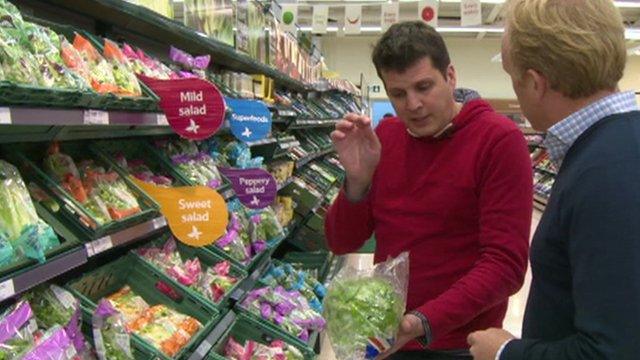Sustainable students: The students with a food waste problem
- Published
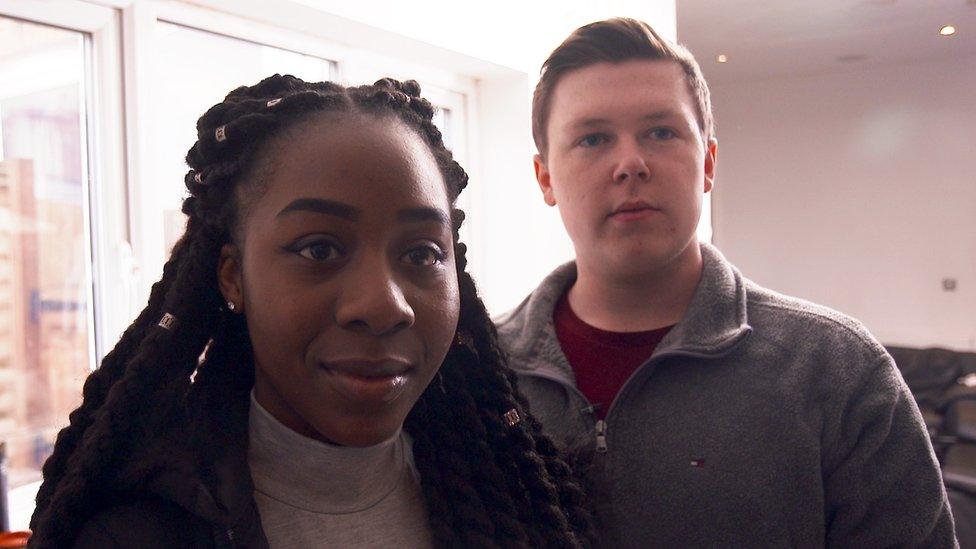
Can Helen and Will reduce their food waste?
A third of all food produced worldwide is never eaten. But how easy is it to reduce our food waste? Two students have been finding out.
"That's not a very pleasant smell," says Loughborough University student Helen Chigwende, standing with the entire contents of her household's food waste bin laid out before her.
"It just smells like sour milk to be honest."
It is far from an everyday scenario, but if Helen and one of her five housemates, Will Smith, want to learn how to live a more sustainable lifestyle, they need to understand their current habits.
And that means rummaging through their leftovers - or simply food that has been sent straight to the bin, having never been touched.
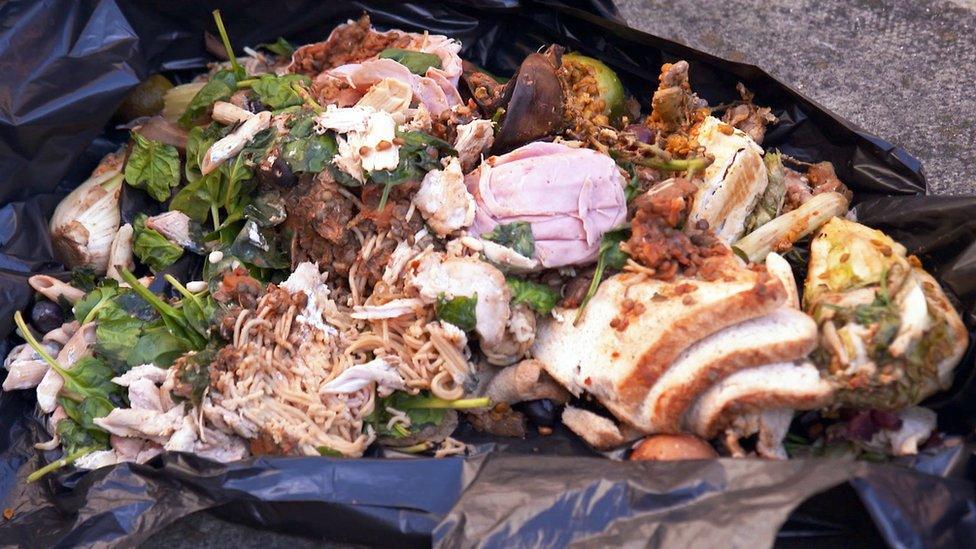
The contents of the students' food waste bin
With the help of Dr Elliot Woolley, a senior lecturer in sustainable manufacturing at Loughborough University, they soon find out how much of their food waste could have been avoided.
"We've got a lettuce sandwich meat that doesn't even look like it's tried to be eaten, slices of bread, and some garlic bread as well," he says, looking at what still-edible food he could salvage.
It is formed into a pile of "avoidable" waste, that soon becomes double the size of the "unavoidable" cast-offs, containing the stem from grapes, lemon skins, chicken bones, eggs shells and banana peel.
"Looking at the amount that could have been eaten," says Will, reacting to the avoidable pile, "especially seeing how fresh the food is as well - it is surprising."
"A lot of [the avoidable waste] is mine," adds Helen, taking responsibility for the ham and bread.
"I didn't realise I was contributing to this much food waste."
When weighed, the waste combined comes to 3.5kg, which both feel they could halve.
Three tips for improvement
"One of the reasons why we end up with a lot of food waste is that food isn't stored properly," explains Dr Woolley.
Sometimes it is placed in an area of the fridge or cupboard where it is not easily visible, "so it gets left and not consumed in time", he adds.
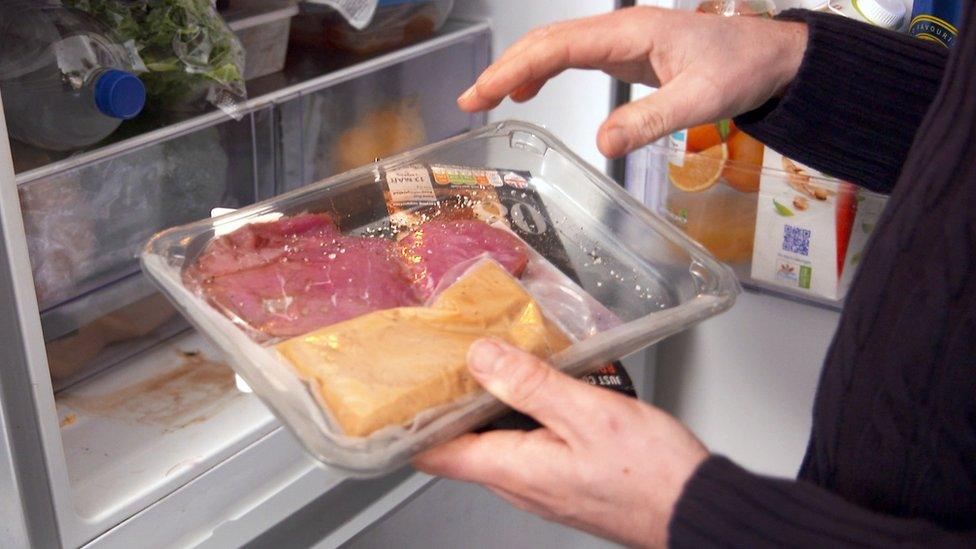
Dr Woolley finds an opened steak packed in the fridge, meaning the meat is more likely to go off
He inspects the students' fridge.
"We've got some cheese that hasn't been sealed properly, so potentially that can end up dry," he says.
"We've got steak - one of them has been eaten, the other one hasn't been wrapped up properly. It could potentially go bad before someone gets a chance to eat it."
For Dr Woolley, there are also two other factors in reducing food waste.
"The first is planning," he says. "Write a shopping list - make sure you're not duplicating things you've already got."
The second is preparation, and "cooking the right amount for the people that are going to eat.
"If you're overcooking, you're likely to generate waste," he says.

Rachel Ama is hoping the students can cut down on their meat intake
For Rachel Ama, a vegan chef, food choices are also key to ensuring a sustainable lifestyle.
Scientists have recently developed a "planetary health diet", designed to feed 10 billion people without causing catastrophic damage to the planet.
It does not completely banish meat and dairy, but recommends we get most of our protein from nuts and legumes - such as beans and lentils - instead.
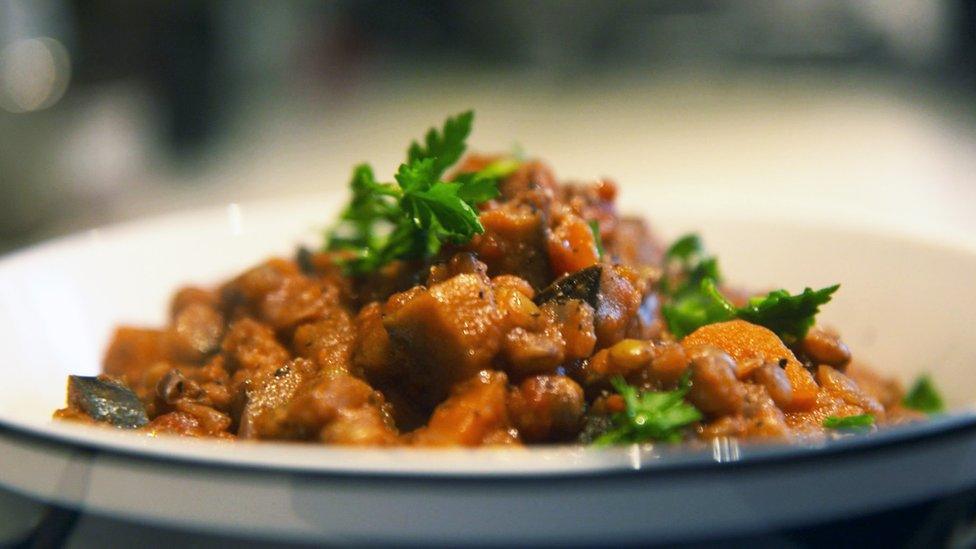
The students' vegetable bolognese, with the help of Ms Ama
To take them one step closer to that goal, Ms Ama is teaching Helen and Will to cook vegetable bolognese, with lentils providing the fibre and protein.
Helen admits she is sceptical, but is willing to try it as a one-off.
"If I went to a restaurant I would never order a vegetarian meal, I'd never even think about it," she says.
But once cooked, the verdict is positive.
"This actually is really tasty. I'm 100% surprised," she says, smiling.
"I thought it'd be incomplete without any meat in it," adds Will, "but it tastes really nice. I'd definitely make it again."
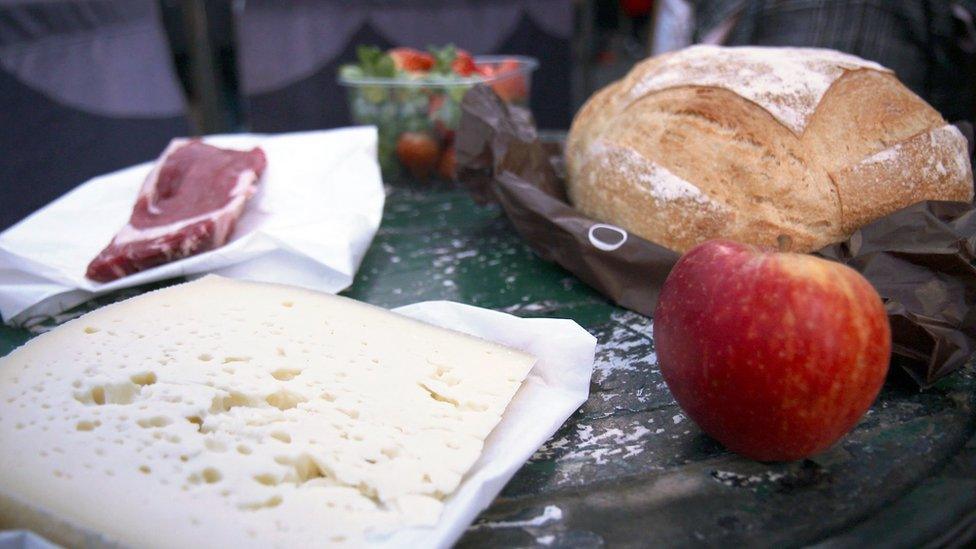
Cutting down on meat and dairy can be key to living more sustainably.
Dr Woolley says typically animal-based products have the highest environmental impact.
Beef is one of the worst culprits, he adds, with 17kg of carbon dioxide being released for each 1kg of beef.
But it is also important to ensure we eat fruit and vegetables when they are in season.
If not, the carbon footprint can multiply tenfold.
Rather than 150g of carbon dioxide being released per punnet of strawberries, this can rise to 1.5kg.
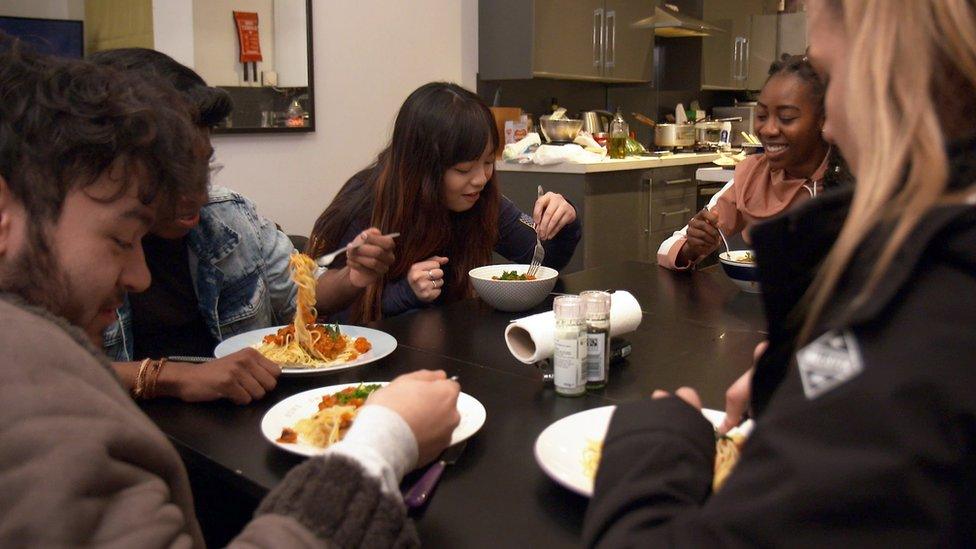
The taste test, with Will and Helen's flatmates
Back at the student house, Helen and Will are cooking the vegetarian spaghetti Ms Ama taught them for their housemates, hoping to impress.
Of course, they don't have the chef's expect guidance, but it still goes down relatively well.
"You've done a good job bearing in mind I didn't think this was going to be eaten at all," says one of their housemates.
"It's not horrible," adds another.
The long-term test of whether Helen and Will can keep up their dietary charges and reduce food waste is yet to come.
But it seems both are keen to make a positive change.
Despite being a "picky eater" and previously having meat in all her meals, Helen says a week of sticking to the planetary health has not been too difficult.
She even ventures as far as to say it was "quite easy" to substitute meat products with non-meat options.
"It's just about finding things you'll enjoy eating," she adds.

Follow the BBC's Victoria Derbyshire programme on Facebook, external and Twitter, external - and see more of our stories here.
- Published14 December 2018
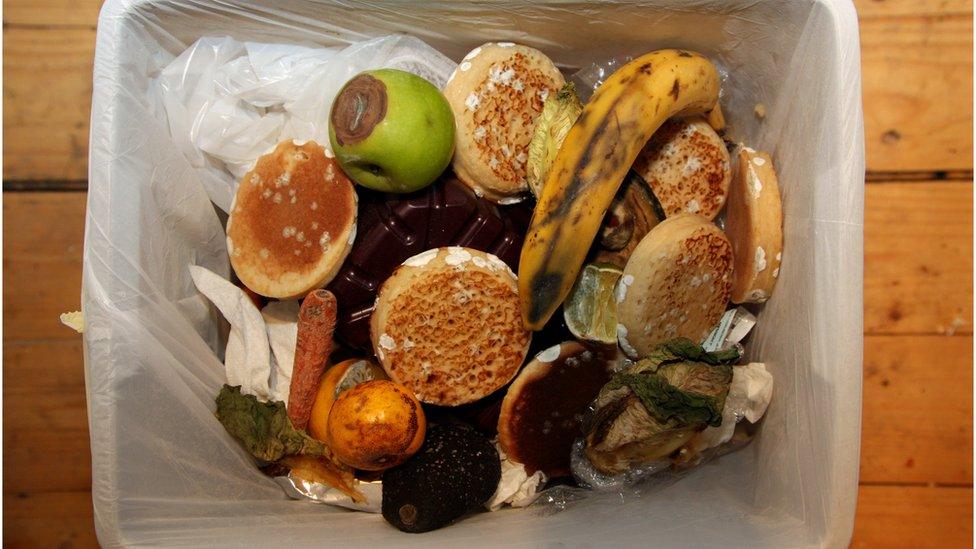
- Published22 October 2013
